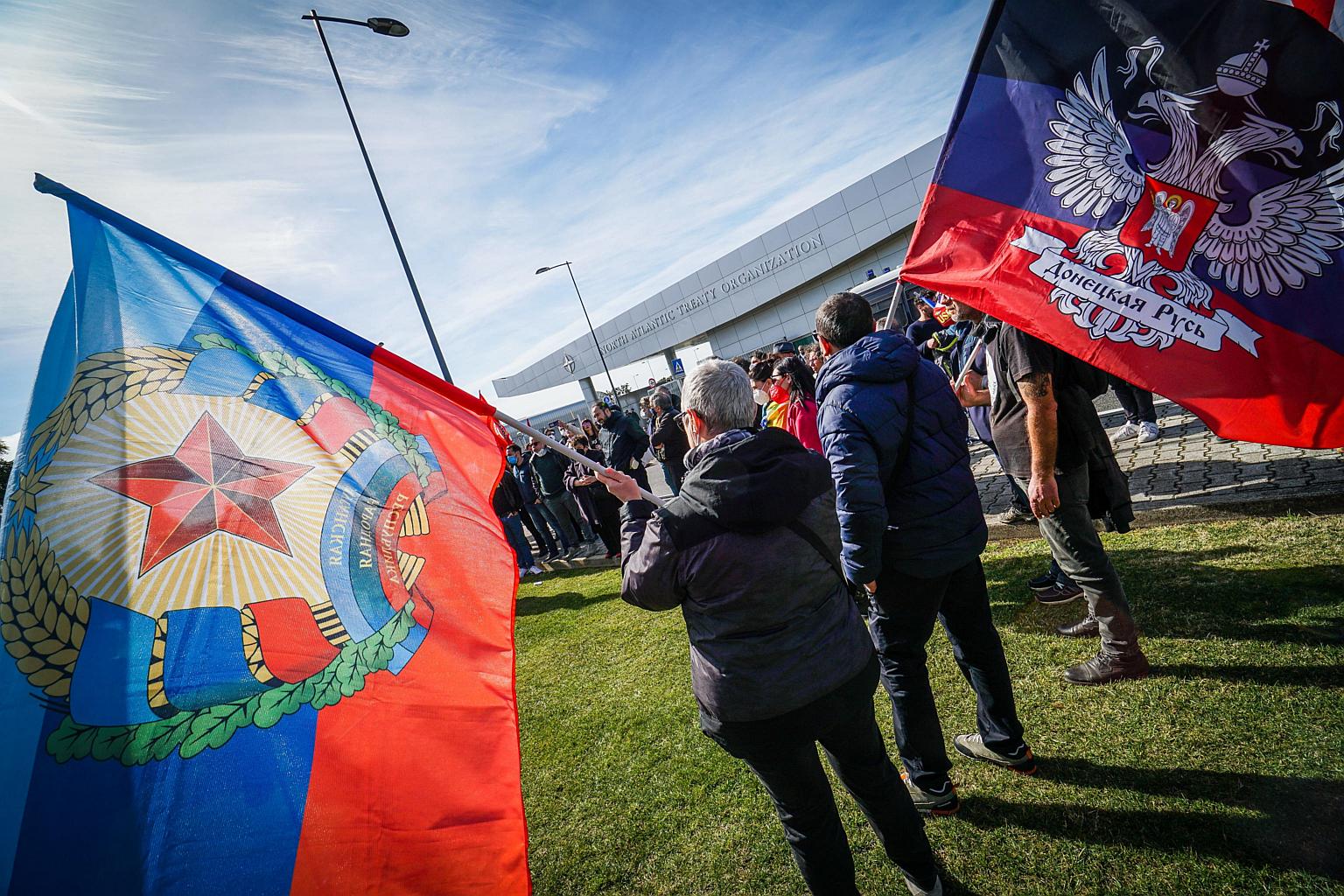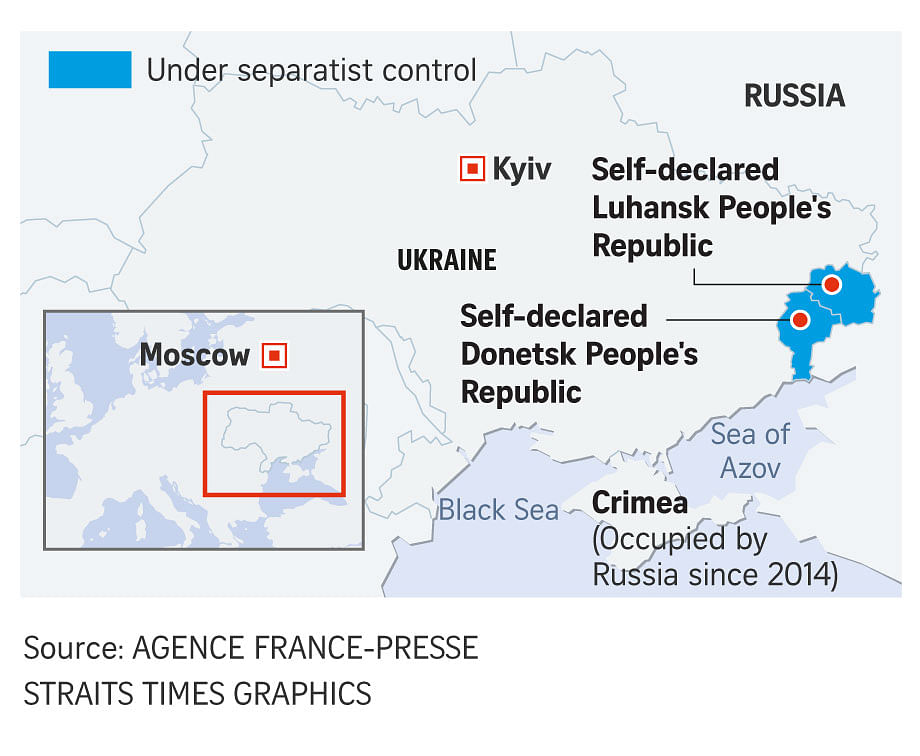Why Donetsk and Luhansk matter to Putin and global security
Sign up now: Get ST's newsletters delivered to your inbox

Demonstrators waving the flags of the self-proclaimed Donetsk People's Republic (right) and Luhansk People's Republic, at a protest in Naples, Italy, on Feb 19, 2022.
PHOTO: EPA-EFE
MOSCOW (BLOOMBERG) - Russian President Vladimir Putin ratcheted up tensions over Ukraine by announcing he's recognising a pair of self-proclaimed separatist republics in eastern Ukraine.
He also said he would send "peacekeeping forces" to the Donetsk and Luhansk People's Republics, fuelling US and European concern that Moscow is moving to take control of land internationally recognised as part of Ukraine.
Russia has repeatedly denied it is planning any attack, and Putin has said his country was not considering annexing the area. Still, the decree is the latest move in Putin's 20-year campaign to restore Russia's dominance over its former Soviet neighbours and prevent them forging closer ties with the West.
Here's a closer look at the territories and why they are now at the centre of attention:
What are the Donetsk and Luhansk People's Republics?
They were once Ukraine's industrial heartland, part of largely Russian-speaking provinces in the nation's southeast. Russia-backed separatists seized control of the regions along the two nations' border after the overthrow of Ukraine's pro-Kremlin president, a move that coincided with Russia occupation of the Crimea peninsula in 2014.
The fighting has killed about 14,000 people and left more than 1.4 million internally displaced within Ukraine, according to government data. The rebels hold about one third of the provinces, calling them the Donetsk People's Republic (DNR) and the Luhansk People's Republic (LNR).
No nation recognised them until Russia did so. Russia has been giving them financial and military support since their formation, and has granted Russian passports to hundreds of thousands of people there.
Why are they in focus now?
Russia wants Donetsk and Luhansk to gain autonomy that gives them an effective veto over major shifts in Ukraine's orientation - namely the Western integration backed by a sizeable majority of the country's 41 million population.
That would be political suicide for Ukrainian President Volodymyr Zelensky, who's struggling to boost economic growth and curb corruption. He told diplomats that Ukraine needs a "very clear perspective" about its Nato membership, and North Atlantic Treaty Organisation Secretary-General Jens Stoltenberg said that the alliance continues to support Ukraine's efforts to become a member.
Why Minsk Accords Are Murky Path for Ukraine Peace
A cease-fire in the region has always been shaky, with thousands of violations each year, according to international monitors. In a hair-trigger situation, with thousands of Russian troops massing along Ukraine's borders, this is the most likely source of a spark for a wider conflict. Russia has offered citizenship to the residents of the separatist regions, and a threat to their lives could be used as justification for further action.
Why is the West interested?
If US warnings of an invasion are borne out, it could mark the worst European security crisis since World War II, dwarfing the tensions triggered by Putin's occupation of Crimea and the earlier fighting in eastern Ukraine.
The US, EU and Britain have been finalising a package of sanctions if Russia does invade. Potential measures include targeting its billionaires, extra restrictions on sovereign debt, disrupting lenders' ability to use dollars or blocking the new Nord Stream 2 natural gas pipeline between Russia and Germany.
The West also has invested a lot financially in Ukraine's success. The International Monetary Fund has offered support to the nation, billions of dollars have flowed in from the World Bank and the European Union, and the US has provided loan guarantees and military aid.



